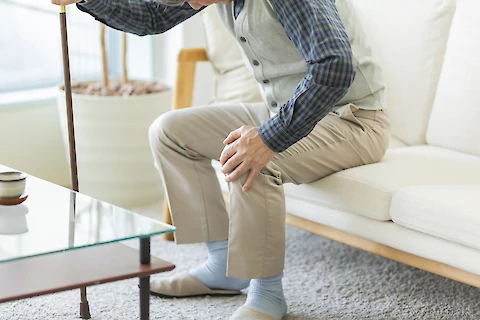
Chronic pain is a prevalent issue amongst older adults, significantly impacting their quality of life. Balancing the daily struggle of pain while maintaining independence can be a frustrating challenge. We're here to give you some practical strategies and lifestyle adjustments that can help manage chronic pain at home, enhancing the quality of life for your loved ones. Ready to get started?
Chronic Pain in Senior Adults
Chronic pain, defined as discomfort that lasts longer than three months, is a common phenomenon among older adults. The culprit could be arthritis, neuralgia, or chronic lower back pain. The lingering pain can significantly hamper the daily activities and overall well-being of seniors, leading to other health issues and discomfort.
Practical Strategies for Chronic Pain Management
There are various ways to manage chronic pain. Non-pharmacological methods play a vital role and can be an effective first line of defense. Regular physical activity and exercises can improve strength and flexibility, potentially easing pain. Relaxation techniques, such as breathing exercises and meditation, can help manage stress, often exacerbating chronic pain.
When non-pharmacological methods aren't enough, over-the-counter pain relievers or prescription medications might be necessary. It's essential to consult with healthcare professionals before starting any medication regimen to prevent potential side effects or drug interactions.
Lifestyle Adjustments for Chronic Pain Management
Beyond exercises and medications, lifestyle modifications can go a long way in managing chronic pain. A balanced diet rich in anti-inflammatory foods like fruits, vegetables, whole grains, and lean proteins can help reduce inflammation, a common cause of chronic pain.
Good sleep hygiene is vital as poor sleep can intensify pain perception. Regular check-ups and monitoring are equally important to ensure optimal health and catch potential issues early on.
The Role of In-Home Caregivers in Chronic Pain Management
Professional and family caregivers can significantly assist in chronic pain management. They provide physical assistance, ensuring seniors can safely carry out their daily activities and exercises. Caregivers also monitor medication intake, preventing overdoses or missed doses.
On top of these practical roles, in-home caregivers provide invaluable emotional support. They offer companionship, empathy, and understanding, often making the pain more bearable.
Turn to Senior Helpers Southern New Hampshire
Chronic pain shouldn't rob our seniors of their golden years. By employing practical strategies, making lifestyle adjustments, and leveraging the support of in-home caregivers, chronic pain can be successfully managed.
At Senior Helpers Southern New Hampshire, we aim to provide top-notch in-home care services that extend beyond basic physical support. Our specially trained caregivers understand the unique challenges that come with chronic pain. They are trained in pain management techniques and are equipped with skills to offer emotional support as well.
Choosing Senior Helpers for your loved ones means ensuring they receive respectful and empathetic care that promotes their independence while helping manage their chronic pain effectively. If your loved one lives in Manchester, Derry, Nashua, Dover, or Salem and would benefit from compassionate in-home caregiving services, please contact us at Senior Helpers Southern New Hampshire today.